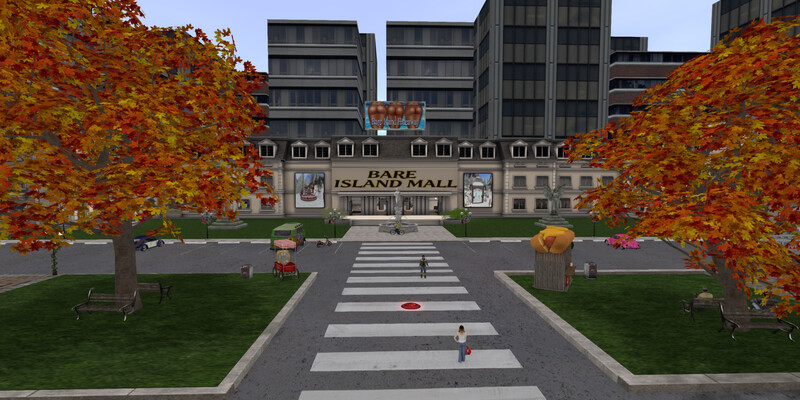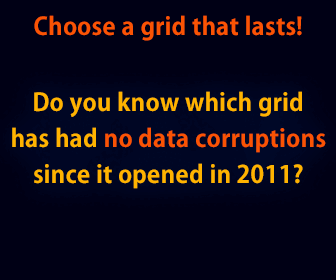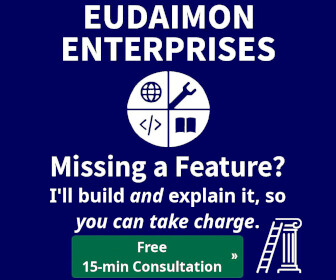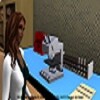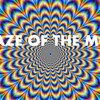OSCC Keynote 2
Details
- Region:
- OSCC Keynote 2
- Grid:
- cc.opensimulator.org:8002
- Rating:
- General
- Category:
- Venues
- Added by :
- AvaCon Inc.✔
- Created :
- 10 years ago
- Traffic Rank:
- 1,709th
- Avatars in Region:
- 0
This region is part of the Keynote Regions for the OpenSimulator Community Conference.
The OpenSimulator Community Conference is an annual conference that focuses on the developer and user community creating the OpenSimulator software. Organized as a joint production by Core Developers of OpenSimuator and AvaCon, the virtual conference features presentations, workshops, keynote sessions, and social events across diverse sectors of the OpenSimulator user base.
Starting at 3:30 PM SLT
The Teleportal: An interactive gateway of the Virtual Worlds Museum™
By :Julian Reyes
He is the Founder and Director of the Virtual Worlds Museum™, whose mission is to explore, preserve, and showcase the evolution of immersive worlds. In recognition of his contributions to the XR industry and digital preservation, Julian was awarded the AUREA Impact Award 2025, alongside Lisa Egger of Arrival Space. He has since been invited to serve as a juror for the AUREA Award 2026 and is a featured speaker at Immersive X.
hop address: hop://cc.opensimulator.org:8002/OSCC%20Keynote%202/24/245/...
Hypergrid Address: http://cc.opensimulator.org:8002
Register and support OSCC.
https://conference.opensimulator.org/register/
Check out our Schedule: http://conference.opensimulator.org/schedule/
Or watch live: https://youtube.com/c/AvaconOrg/live
 | Fiona Sweet: eventbrite says registration ended at 9am dec 5. we can still attend? https://gyazo.com/12a9b605d38a4c276061cbb1a250d5c3 2 months ago |
1PM PST - Inworld Review tribute to Mal Burns
Moderated by Mal's Co-host, James Atlloud
2PM PST - AI and the Metaverse Panel
Moderated by: Maria Korolov
hop address: hop://cc.opensimulator.org:8002/OSCC%20Keynote%202/24/245/...
Hypergrid Address: http://cc.opensimulator.org:8002
Register and support OSCC.
https://conference.opensimulator.org/register/
Check out our Schedule: http://conference.opensimulator.org/schedule/
Or watch live: https://youtube.com/c/AvaconOrg/live
#Metaverse #opensource #opensimulator #virtualworlds #web3
From 7:00 AM PST, going to 6PM PST.
Register and support OSCC.
https://conference.opensimulator.org/register/
Check out our Schedule: http://conference.opensimulator.org/schedule/
hop address: hop://cc.opensimulator.org:8002/OSCC%20Keynote%202/24/245/...
Hypergrid Address: http://cc.opensimulator.org:8002
Or watch live: https://youtube.com/c/AvaconOrg/live
#Metaverse #opensource #opensimulator #virtualworlds #web3
Sunday 7:00 AM PST, going to 6PM PST.
Register and support OSCC.
https://conference.opensimulator.org/register/
Check out our Schedule: http://conference.opensimulator.org/schedule/
Hypergrid Adress: http://cc.opensimulator.org:8002
Or watch live: https://youtube.com/c/AvaconOrg/live
#Metaverse #opensource #opensimulator #virtualworlds #web3
Schedule: http://conference.opensimulator.org/schedule/
Hypergrid Adress: http://cc.opensimulator.org:8002
Or watch live: https://youtube.com/c/AvaconOrg/live
#Metaverse #opensource
Hypergrid to "OSCC Keynote 2", or watch live at: https://www.youtube.com/c/AvaconOrg/live
Check out our Schedule: https://conference.opensimulator.org/schedule/
Or register and support OSCC.
https://conference.opensimulator.org/register/
Hypergrid to "OSCC Keynote 2", or watch live at: https://www.youtube.com/c/AvaconOrg/live
Check out our Schedule: https://conference.opensimulator.org/schedule/
Hypergrid to "OSCC Keynote 2", or watch live at: https://www.youtube.com/c/AvaconOrg/live
Check out our Schedule: https://conference.opensimulator.org/schedule/
Register & support OSCC.
https://conference.opensimulator.org/register/
Hypergrid to "OSCC Keynote 2", or watch live at: https://www.youtube.com/c/AvaconOrg/live
Check out our Schedule: https://conference.opensimulator.org/schedule/
And register & support OSCC.
https://conference.opensimulator.org/register/
Hypergrid to "OSCC Keynote 2", or watch live at: https://www.youtube.com/c/AvaconOrg/live
Check out our Schedule: https://conference.opensimulator.org/schedule/
Or register and support OSCC.
https://conference.opensimulator.org/register/
Hypergrid to "OSCC Keynote 2", or watch live at: https://www.youtube.com/c/AvaconOrg/live
Check out our Schedule: https://conference.opensimulator.org/schedule/
Or register and support OSCC.
https://conference.opensimulator.org/register/
Hypergrid to "OSCC Keynote 2", or watch live at: https://www.youtube.com/c/AvaconOrg/live
Check out our Schedule: https://conference.opensimulator.org/schedule/
Or register and support OSCC.
https://conference.opensimulator.org/register/
Come by for any sessions that pique your interest.
Schedule: https://conference.opensimulator.org/schedule/
Hypergrid Adress: http://cc.opensimulator.org:8002/
Or watch live: https://www.youtube.com/c/AvaconOrg/live
#Metaverse #opensource
Where: OSCC Keynote 2
When: 4 years ago [12 Dec 2021 17:30 SLT]
In this presentation we will share our experience and lessons learned in designing virtual simulations for learners in high and low resource settings and explore the challenges and opportunities for co-creating virtual simulations with globally distributed teams.
Matt Cook, Rachel Umoren
Where: OSCC Keynote 2
When: 4 years ago [12 Dec 2021 17:00 SLT]
Kevin Feenan, founder of Rockcliffe University Consortium, will be discussing challenges facing virtual environments over the coming years. Over the past 10 years, the competitive advantage of environments like Second Life and Open Simulator have not kept pace with technological innovation in general. This presentation will look at how we got here, what the immediate pressures are to innovate, and what we can do to change things.
By Kevin Feenan
Where: OSCC Keynote 2
When: 4 years ago [12 Dec 2021 16:30 SLT]
Pursue broad questions that are fundamental to any efforts in research writing. Who is the author of the text? What period was the text about? How do we interpret the ideas? Hermenetutics has been useful as a way to interpret texts since Antiquity and called the ‘hermeneutic circle.’
The critique is imperative. Why do writers write? The answer is that characters, setting, mood, voice, and themes dynamically bring us to a state of relaxation and vision to understand truths. Literature is inspirational. My intention is to provide readers with tools to research the use of social justice as a reason to write and a methodology of applying the social justice paradigm for writing.
By Maryann DiEdwardo
Where: OSCC Keynote 2
When: 4 years ago [12 Dec 2021 16:00 SLT]
We present the latest iteration of the RezMela Composer application. It has been shown to facilitate and speed up content production using various innovative techniques. Firstly, it provides access to a curated list of objects that can be assembled into useful 3d structures or powerful experiences. Secondly, the Composer offers a unique user interface which speeds up common but laborious and time consuming content creation tasks.
By Rameshsharma Ramloll
Where: OSCC Keynote 2
When: 4 years ago [12 Dec 2021 15:30 SLT]
This presentation will showcase work conducted by Virtual Harmony in the prototyping of AI-augmented 3D visualization in the metaverse for supporting interdisciplinary endeavors with cognitive sciences across education, industry, and the military.
Highlights will be showcased from efforts with developing and using an AI strategy and concepts virtual observatory hub offering a learning neural net supporting metaverse AI-augmented client-server visualization tool for visualization of data collected from interactive learning simulations.
Andrew Stricker / Spinoza Quinnell, Cynthia Calongne / Lyr Lobo
Where: OSCC Keynote 2
When: 4 years ago [12 Dec 2021 14:30 SLT]
The Kitely-hosted virtual world project, “CheriNet Creative HQ” serves as a vehicle for the integration of non-fungible tokens (NFTs), artificial intelligence art (AI art), and PoS blockchains into 3D immersive virtual worlds. It was created to provide NFT-related capacity building; to promote NFT awareness; and to showcase digital media projects including artificial intelligence generated art (AI/GAN art), Non-Fungible Tokens (NFTs), and related videos.
Project visitors including real life and virtual-based artists will use the 3D immersive virtual world to view and share digital media collections while building a community for information sharing, informal discussions, training, and educational sessions pertaining to Non-Fungible Tokens (NFTs); Proof-of-Stake (PoS) blockchains; and artificial intelligence generated art (AI/GAN art).
By Sally S. Cherry BS MT(ASCP)
Where: OSCC Keynote 2
When: 4 years ago [12 Dec 2021 14:00 SLT]
Venture capital investment in the metaverse has nearly doubled this year, Facebook has changed its name to Meta, and metaverse hype is everywhere. With improvements in bandwidth and better headset design, we’re on the cusp of a new era. Many of the projects being announced are closed or proprietary platforms. OpenSim’s decentralized, open-source, hyperconnected universe can point the way to how to do it right.
By Maria Korolov
Where: OSCC Keynote 2
When: 4 years ago [12 Dec 2021 13:30 SLT]
“Hybrid Tech” means combining multiple tools to blend their strengths and mediate their weaknesses, relative to the use case at hand. “Cross Dimensional Thinking” means shifting perspectives, again and again, to master hybrid tech tool combinations. We will review FIVE USE CASES demonstrating how tools and perspectives can be blended interchangeably, relative to the use at hand.
By James Neville / Sitearm Madonna
Panel discussion moderated by Mal Burns.
Panelists:
Dr. Fran
Doug Thompson
WE ARE GOING TO AMERICA. That was the message the Pilgrims followed in 1620. AMERIKA is a village in Germany carrying the German / Dutch / Africaans / Turkey name for America so the slogan goes also this way: WE ARE GOING TO AMERIKA. Common between all languages is that we are leaving the borders of the old worlds behind. In May 2022 will be the award ceremony in the real Amerika Museum in Germany.
One year ago the call was made at OSCC20 for an immersive art competition, called AMERIKA ART. At OSCC21 the Grand Opening will happen. The Italian machinimist WizardOz Chrome created a machinima AMERIKA ART 2022 that will be presented, then everyone is invited to explore the art show and to give a vote that will result in the public award for one of the Long-Legged Maskitts, designed as a bronze statue by the Canadian artist Bryn Oh.
By Reiner Schneeberger/ Art Blue
Groups of language learners, young and old, meet in immersive environments like OpenSim, Second Life or Minecraft and are asked to build a spaceship together. Or a village, or a power plant. They come from Italy, Finnland and Germany and need to communicate in English to achieve the lofty goals. Can building in OpenSim provide a venue to communicate in English in real-time? This potential will be explored in EXCALIBUR, a new EU funded project to come in 2022.
By Heike Philp
Where: OSCC Keynote 2
When: 4 years ago [12 Dec 2021 10:00 SLT]
The focus of this presentation is on immersing learners in OpenSimulator for TESOL. It highlights the need to incorporate Virtual Worlds in order to keep up with educational needs in conjunction with contemporary technological habits.
(TESOL stands for Teaching English to Speakers of Other Languages)
By Helena Galani
Where: OSCC Keynote 2
When: 4 years ago [12 Dec 2021 09:30 SLT]
A panel will share a variety of digital citizenship elements relating to changing digital culture, the need for metaliteracy, and ways digital citizenship can be advocated in virtual environments. The target audience is educators, learners, and anyone interested in utilizing virtual worlds for specific purposes. Examples of the need for digital citizenship will be featured as a personal responsibility for each of us.
Sheila Webber / Sheila Yoshikawa & Valerie Hill / Valibrarian Gregg
This presentation from Infinite Metaverse Alliance® (IMA) and Thales Group discusses detailed research and development progress made by student interns, past and present, on the future viewer SceneGate 2.0 project. Areas of investigation include: documenting the viewer source code; exploring use of a more modern rendering engine; streamlining the source code where needed; and updating the development environment.
Frank Rulof & Lisa Laxton
Where: OSCC Keynote 2
When: 4 years ago [12 Dec 2021 07:30 SLT]
This presentation from Infinite Metaverse Alliance® (IMA) and Thales Group discusses research and development progress towards improving open source code for: SceneGate 1.x, Future SceneGate 2.0, DreamGate, IMABox, and EchoVoice projects. The work of IMA and Thales is in general directed toward broadening use of the Metaverse for Public, Education, Industry and Government sectors but the community as a whole benefits from open source.
Frank Rulof & Lisa Laxton
Where: OSCC Keynote 2
When: 4 years ago [12 Dec 2021 07:00 SLT]
This session will delve into how virtual world use was impacted by expanded online instruction during the pandemic. The expectation (based on a 2020 survey of educators) was that faculty would expand their use of virtual world learning activities during the 2020-2021 academic year. Still, faculty plans to increase their use of virtual world learning simulations did not take into account student interest in virtual world learning simulations during the pandemic.
Student attrition in combination with the Zoom class webinar scheduling demands on students during the pandemic led to lower undergraduate student interest in virtual world learning activities. One bright spot in the realm of student interest in virtual world learning was observed in a class of graduate students studying how to teach online. As a related topic, this session will explore how to better position the OpenSimulator virtual world platform to play a larger role in the expected continued expansion in online instruction.
By Kay McLennan
Where: OSCC Keynote 2
When: 4 years ago [11 Dec 2021 17:30 SLT]
As a follow-up to the 10:30 presentation, Andrew and Cynthia will provide guided tours and explanations of the Barbara Truman Planetarium.
Search the grid map for “Planetarium” or click on the map signage to teleport.
The Barbara Truman Planetarium honors our dear friend, Delightful Doowangle, and her love for virtual worlds. Delightful devoted her life to virtual world simulation research, education, and Team Science. She supported the OSCC Organizing Committee and was the Community Manager for the Military Open Simulator Enterprise Strategy (MOSES) project. Join us as we reflect on how she continues to inspire us at Virtual Harmony.
Andrew Stricker / Spinoza Quinnell , Cynthia Calongne / Lyr Lobo
Where: OSCC Keynote 2
When: 4 years ago [11 Dec 2021 17:00 SLT]
The Metaverse as a Distributed system: How we can react to Facebook’s conversion to Meta, and what their commitment combined with other technologies now available means for the future of the Metaverse. Businesses need different solutions than end users do. At the same time, we need those different systems to interact smoothly while addressing the privacy and security issues of today’s popular systems.
By Michael Christopher
Where: OSCC Keynote 2
When: 4 years ago [11 Dec 2021 16:30 SLT]
As WordPress is one of the most popular CMS, I wanted to fill the gap and create an easy to setup front-end. While there were some attempts in this way, they were not ready to use solutions, more like pieces of puzzle to bring together. So started the development of W4OS (aka WordPress For OpenSimulator). The plugin is now tested and published, and allows showing the grid status, user grid registration and even the choice of initial avatar. Next goal is to add web grid profile, user region controls, some admin features and integrations like 2do HYPEvents calendar or web assets server.
By Magic Oli
Moderated by Maria Korolov
Panelists
Ann Cudworth / Annbelle Fanshaw, Cynthia Calongne / Lyr Lobo, Dauna Kiser / Ghaelen D'LarehDauna , Maria Korolov
Animesh is the ability to put armatures into mesh objects and animate them in OpenSim. I’ll rez some examples of critters that are not humanoid and even some machines that were made for animesh. These critters and machines have advantages over NPCs, starting with anyone can rez an animesh as if it was a regular prim, while NPCs are usually restricted to estate owners or managers.
By Kayaker Magic
Presentation of the International Spaceflight Museum’s Mars Base / Universal Habitat analog astronaut / colonist training facility. Will discuss the features of construction virtually, but will focus on how people interested in either learning more about colonizing Mars, or who want to begin training to colonize the Red Planet at some point in the future, to use the ISMs facility to begin that training process. How the facility portrays three phases of colony construction, how current technologies will be used to realize this construction using In Situ Resource Utilization of resources already present on Mars to drastically reduce the cost of both travel to Mars and to make living on Mars not only survivable, but to grow and thrive into a self sustaining colony capable of making mankind a multiplanetary species.
By Mike Lorrey
Where: OSCC Keynote 2
When: 4 years ago [11 Dec 2021 14:00 SLT]
A professional appearance for your avatar is essential for educators networking in virtual worlds. This workshop will help attendees change their avatar’s appearance so it reflects who they are. The focus is on traditional (non-mesh) avatars and clothing.
By Beth Ghostraven
Where: OSCC Keynote 2
When: 4 years ago [11 Dec 2021 13:30 SLT]
Panel discussion moderated by Mal Burns.
Panelists:
Mal Burns, Adam Frisby, Evo Heyning, Dale Glass
Going over the OpenSimulator Growth and Statistics
With Maria Korolov from Hypergrid Business
The Barbara Truman Planetarium honors our dear friend, Delightful Doowangle, and her love for virtual worlds. Delightful devoted her life to virtual world simulation research, education, and Team Science. She supported the OSCC Organizing Committee and was the Community Manager for the Military Open Simulator Enterprise Strategy (MOSES) project. Join us as we reflect on how she continues to inspire us at Virtual Harmony.
By: Andrew Stricker / Spinoza Quinnell , Cynthia Calongne / Lyr Lobo , Francisca Yonekura / Frankie Antonelli, JJ Jacobson / JJ Drinkwater
Where: OSCC Keynote 2
When: 4 years ago [11 Dec 2021 10:00 SLT]
DreamGrid is a free, pre-packaged Windows-compatible virtual reality metaverse system that is easy to install, easy to run, and powerful.
Anyone with Windows can run their own grid from home or at work with DreamGrid. DreamGrid automatically configures many routers for the Hypergrid with Plug and Play in Grid mode. It takes just a few clicks to launch a new Grid. The new Smart Start feature can easily create, populate, and run 160+ free regions with 10’s of gigabytes of DLC even on limited memory PC’s in under a few GB of RAM. Opensim region modules include Gloebit, jOpensim, Tides, Search, Birds, and Auto-Updating teleport sign system, and the new Smart Start. Smart Start includes Smart Boot on demand, which uses far less memory and CPU that standard Opensim. There is an Endless Seas and Land function, a Smart AI land generator and a Landscaping Manager. DreamGrid is preset with streaming audio and video for region-wide sounds and video. It includes an extensive searchble map system that shows exactly where people have been in each region, every minute. Web Front ends include jOpensim, Wordpress, Custom or Diva web pages.
By Fred Beckhusen / Ferd Frederix
Where: OSCC Keynote 2
When: 4 years ago [11 Dec 2021 09:30 SLT]
The Virtual Worlds Education Consortium began in January 2021 in Second Life and meets quarterly. As the metaverse expands, VWEC strives to explore evolving virtual spaces and has a VWEC Pavilion in Kitely to share resources for educators. Without collaboration and networking, newcomers in virtual worlds find it difficult to navigate to high quality immersive learning experience and often ask “where is everyone?”. Participants will discover the Virtual Word Database, VWEC Directory, and numerous educational opportunities in Kitely and other open sim environments.
By: Becky Adams / Elli Pinion, Kevin Feenan, Renee Emiko Brock / Zinnia Zauber, Valerie Hill / Valibrarian Gregg
Status
- Region Status:
- Online
- Avatars in region:
- 0
- Last checked:
- 14 minutes ago
Visit this region:
Hop V3HG HG Local Grid
Donate
Donate to region
Upcoming Events
Reviews (0)
Likes (5) view all
Region Comments
No comments yet

